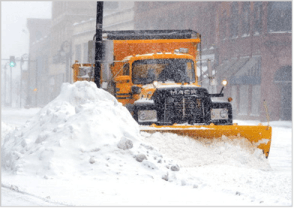 In extreme winter weather, what are your responsibilities for the safety and compensation of employees?
In extreme winter weather, what are your responsibilities for the safety and compensation of employees?
Blizzards, polar vortices and other extreme weather conditions can impact your business in terms of increased costs, property damage, and loss of business, but have you considered the regulatory issues surrounding your employees and the weather?
OSHA and the Fair Labor Standards Act have rules relating to keeping employees safe and properly compensated during harsh winter storms. Employers, according to OSHA, “have a duty to protect workers from recognized hazards, including cold stress hazards that are causing or likely to cause death or serious physical harm in the workplace.”
Per OSHA regulations, you must train workers to recognize conditions that can lead to cold stress, as well as the symptoms of and proper care for victims of the cold. You are also responsible for making sure your workers wear proper protection from the elements. Other OSHA requirements:
- Monitor physical condition of workers
- Schedule short breaks to warm up
- Schedule outdoor work at warmest part of day
- Have employees work in pairs
- Provide “warm sweetened beverages” and “engineering controls” such as heaters
Let’s say instead of providing hot cocoa for your team, you decide to shut down. Now the question becomes: “Do I need to pay everyone?” The answer is yes and no.
Massachusetts, New York and several other states have a “show up “ law requiring that employees be paid a stipulated minimum if they arrive at work regardless of any work performed. If employees heed the warnings and stay home, then non-exempt employees do not need to be paid if no work is performed. Exempt employees, in the event of a shut-down lasting less than one week, must be paid their normal weekly salary. You can, however, deduct the days closed from accrued vacation time. Additionally, you may deduct a day’s wages, if you keep the business open, but the exempt employee cannot make it in. You can choose to pay both exempt and non-exempt employees for days closed at your discretion as long as it is applied in a consistent manner.
For more Employee Safety Tips, click to read the Occupational Safety & Health Administration Cold Stress Guide PDF

